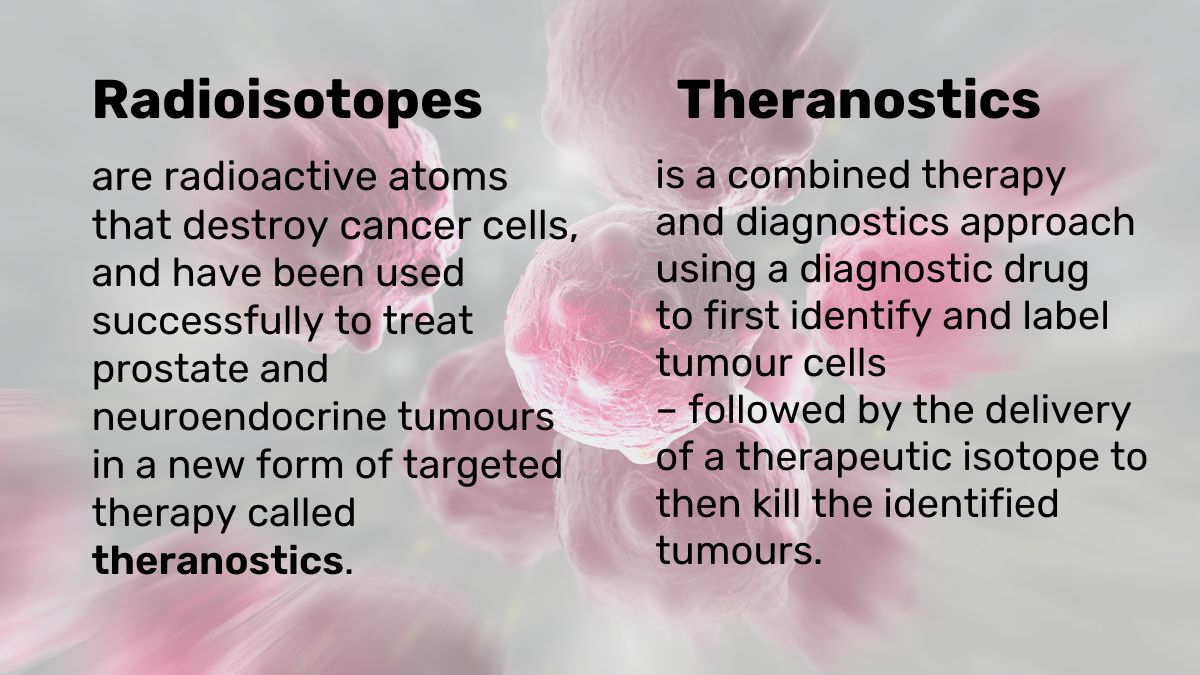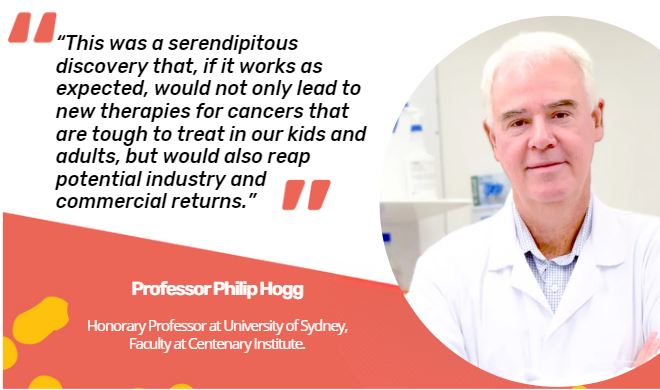A chance discovery in a laboratory may lead to an effective new treatment for solid cancers that are hard to reach and treat.
Prof Phil Hogg, Honorary Professor at University of Sydney, Faculty at Centenary Institute’s ACRF Centenary Cancer Research Centre, was testing a new molecule that he had created to target a certain protein involved in cancer. But instead of attaching to the protein, the molecule entered only the dead and dying cells in the tumour.
“We realised this molecule is unbelievably selective – it just doesn’t get into healthy cells,” Prof Hogg says.
In further testing, the new molecule has proven to be exceptionally specific for dead and dying tumour cells both in the laboratory and in humans.
Initially with Luminesce Alliance Innovation in Paediatric Precision Medicine seed funding, Prof Hogg and his team have been investigating whether they can use the dead cell-seeking powers of this molecule to characterise tumours and develop a new treatment approach using targeted radiation.

The problem with theranostics is how to deliver the radioisotopes to the correct cells. This research project was about figuring out how the cell death specific compound could be used to deliver a therapeutic radioisotope called Lutetium-177 to a tumour. If successful, the cell death specific compound would find and enter the dead and dying cells in a tumour and the accompanying Lutetium-177 radioisotope will then go about killing the neighbouring viable tumour cells.
Professor Hogg’s studies have shown that the cell death specific compound is safe in other organs and is naturally excreted from the body by the kidneys. The radioisotope Lutetium-177 has been widely studied and has been shown to be a safe and effective treatment for prostate and neuroendocrine cancer.
The research results to date have been promising and have led to research funding and may lead to commercial opportunities. The results of the project have also been published in peer-reviewed journal publications (see links below) and presented at cancer research forums.
Results from this project will be used to support further funding applications and commercial development. It is anticipated this research will provide the data required for human biodistribution and dosimetry studies, followed by a Phase 1 dose-escalation clinical trial.
“If successful, it could change the paradigm for treating cancers that are hard to reach and treat”, says Prof Hogg.
Publications:
- Preclinical assessment of [68Ga] Ga-cell death indicator (CDI): a novel hsp90 ligand for positron emission tomography of cell death
- Imaging of cell death in malignancy: Targeting pathways or phenotypes?
- A first-in-human study of [68Ga]Ga-CDI: a positron emitting radiopharmaceutical for imaging tumour cell death



 Back to News
Back to News